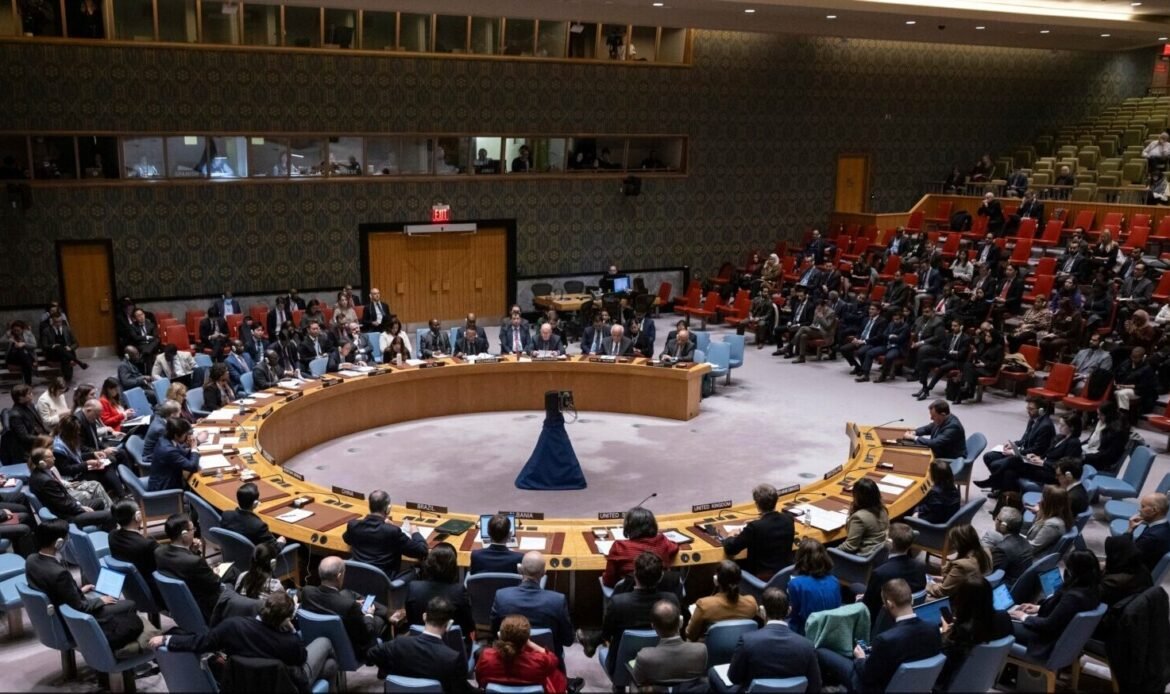The United Nations Security Council convened today to discuss the situation in the Middle East, with a focus on the Palestinian issue.
Addressing the UNSC, UN Secretary-General Antonio Guterres stated that the international community must work together to prevent any actions that could push the entire Middle East into turmoil, with catastrophic consequences for civilians.
He emphasized that the optimal way to achieve this is through comprehensive diplomatic steps to de-escalate tensions in the region, starting with Gaza.
Guterres reiterated his call for an immediate humanitarian ceasefire, noting that the ongoing Israeli aggression against the Gaza Strip for the past six and a half months has created a dire humanitarian environment.
“In Gaza, six and a half months of Israeli military operations have created a humanitarian hellscape. Tens of thousands of people have been killed,” said the UN chief. “Two million Palestinians have endured death, destruction, and the denial of lifesaving humanitarian aid; they are now staring down on starvation. An Israeli operation in Rafah would compound this humanitarian catastrophe.”

He continued, stating that “the casualty figures are overwhelming and unprecedented in speed and scale during my time as Secretary-General. According to UNICEF, more than 13,900 Palestinian children have reportedly been killed in intense, often indiscriminate attacks.”
Guterres also highlighted that Israel has recently rejected over 40% of the United Nations’ requests for aid delivery to the Gaza Strip.
“All this has happened with severe limitations imposed by the Israeli authorities on the delivery of humanitarian aid to people in Gaza, who are facing widespread starvation,” he stressed.
The UN chief added, “To avert imminent famine, and further preventable deaths from disease, we need a quantum leap in humanitarian aid to Palestinians in Gaza. Food is essential; so are clean water, sanitation, and healthcare.”
He affirmed that “failure to make progress towards a two-State solution will only increase volatility and risk for hundreds of millions of people across the region, who will continue to live under the constant threat of violence.”

President Abbas’s representative: Granting Palestine full membership in the UN would alleviate historical injustices
Ziad Abu Amr, a member of the Executive Committee of the Palestine Liberation Organization (PLO), said today before the UN Security Council that granting Palestine full membership in the United Nations would alleviate some of the historical injustices endured by the Palestinian people.
He stated that this step would open broad prospects for achieving genuine peace and safeguarding the two-state solution.
Speaking on behalf of President Mahmoud Abbas, Abu Amr highlighted the ongoing ordeal of the Palestinian people, which has persisted for over a century. He emphasized that Palestinians have been victims of international events and resolutions not of their making, suffering from a historical injustice.
He stressed that Palestinians, who faced the Nakba in 1948 and Israeli occupation in 1967, continue to aspire to exercise their right to self-determination and live freely, securely, and peacefully in an independent state, like all other peoples of the world. Abu Amr acknowledged the significant sacrifices Palestinians have made and continue to make towards this goal.
Abu Amr questioned how recognizing the State of Palestine and granting it full UN membership would harm the prospects for peace between Palestinians and Israelis or international peace and security.
He directed this question specifically at the United States and other countries opposing Palestine’s full membership, while recognizing Israel, the other party in the Palestinian-Israeli conflict, as a full UN member.
Responding to arguments that recognition of the State of Palestine should come through negotiations rather than a UN resolution, Abu Amr asked: “How was the State of Israel established and recognized? Wasn’t it through UN Resolution 181, despite Israel’s failure to comply with the conditions for its UN membership outlined in Resolutions 181 and 194?”
He emphasized that “a resolution to grant Palestine full membership would constitute a significant pillar in achieving peace in the region. The Palestinian-Israeli conflict, with its various ramifications, has extended beyond the borders of Palestine and Israel, affecting other areas in the Middle East and the world at large.”
“Therefore,” added the PLO official, “the time has come for the Security Council to bear its historical responsibility by justly supporting the Palestinian people through adopting a resolution to accept Palestine as a full UN member.”
Abu Amr asserted that those obstructing such a resolution do not contribute to the prospects for peace between Palestinians and Israelis or to peace in the Middle East in general.
He stressed that this resolution would not replace genuine political negotiations within a reasonable timeframe to implement the two-state solution and relevant international resolutions and resolve outstanding issues between Palestinians and Israelis.
He also highlighted that such a resolution would “give Palestinians hope for a dignified life within an independent state, after this hope had been fading in recent years due to the Israeli government’s overt rejection of this solution, particularly after the devastating war on Gaza and its reoccupation by Israel.”
Abu Amr concluded by affirming that the focus on requesting full membership for the State of Palestine in the United Nations, in the dire circumstances currently facing the Palestinian people, amid the ongoing comprehensive war inflicted on Gaza and its inhabitants, amounts to rejecting aggression and insisting on respect for international law, human rights, and the Palestinian people’s right to live freely and with dignity.
He stressed, “There is no better time than now for the international community and the Security Council to fulfill their political, legal, and moral responsibilities towards the just cause of the Palestinian people and their right to freedom and independence, and to uphold the principles of freedom, justice, and peace.”
source: WAFA



